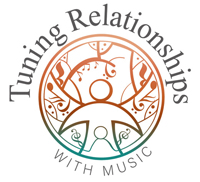Young people who have experienced trauma often require support to regulate and return to their social engagement system when their fight/flight/freeze responses are activated.
One of the instruments which has proven successful in my therapeutic work with adolescents is the Hapi Drum. Stephen Porges, developer of Polyvagal Theory,** recommends the use of an instrument which is within the range of the human voice to switch on the social engagement system. The Hapi drum fits this criterion and also has a lovely, melodic sound which most people find soothing. I have witnessed the significant shift with young people as they play or listen to the Hapi drum. I have noticed them become more engaged through eye contact and smiles, with noticeable changes in body posture as they appear to relax and become more open.
One young person I work with came to a session in a grumpy mood, not wanting to talk or engage. He looked down, was slumped in his chair with his arms folded. The Hapi drum was on the table between us with other instruments. I tentatively started quietly playing the Hapi drum. Initially he showed no response to this, before looking up and slowly unfolding his arms. After more time had passed, he picked up another instrument (a rattle) and played along. As we improvised together, he became more engaged and relaxed as he leaned forward, smiled and seemed to enjoy the playfulness of making music together. His social engagement system was switched on and the session was able to move forward, past the stuck disengaged beginning.
Author: Bronte Allen.
*See https://www.hapidrum.com for more information about this beautiful steel tongue drum, and the different models available.
**See https://www.psychiatrypodcast.com/psychiatry-psychotherapy-podcast/polyvagal-theory-understanding-emotional-shutdown for more information about Polyvagal Theory and why this is a helpful way to understand the impact of trauma on being able to interact with others. For Porges’ thoughts about how music can help, see https://www.everydayhealth.com/wellness/united-states-of-stress/advisory-board/stephen-w-porges-phd-q-a/
